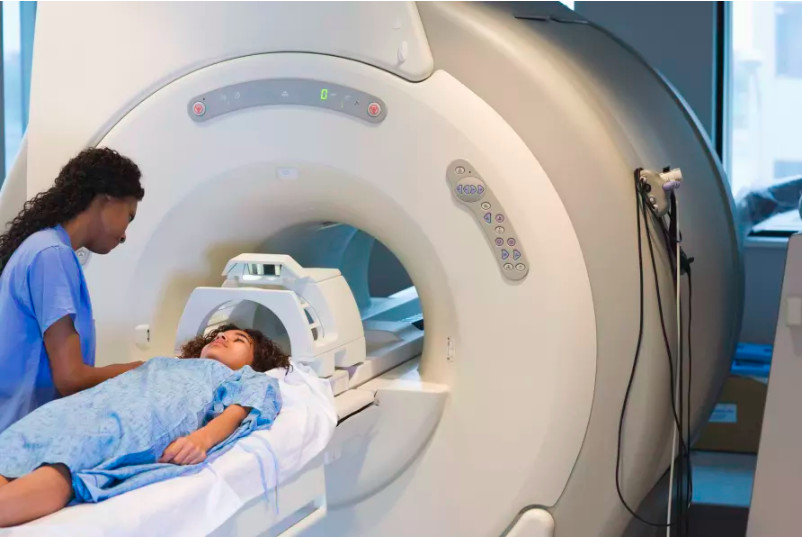
Health & Medicine
Schizophrenia: Mapping how the brain changes

New research shows that some people with schizophrenia may have a protective mechanism that buffers against the ongoing impact of structural changes in the brain
Published 10 July 2019
In some ways, our brain works a bit like a bank account.
Damage and disease reduce the bank balance while intellectually enriching activities, like education and reading, are making deposits into the account.

The more you engage in these activities, the more your bank account grows.
In neurological illnesses like dementia, people who engage in more intellectually enriching activities tend to exhibit less symptoms like memory loss. This is despite having the same, or even more significant, underlying brain pathology or damage than people with less engagement.
This phenomenon is known as ‘cognitive reserve’ - where these activities boost intelligence to build a reserve that acts like a ‘shield’.
It buffers against the impact of illness and reduces observable symptoms.

Health & Medicine
Schizophrenia: Mapping how the brain changes
New Australian research shows that this protective mechanism may be relevant to schizophrenia and the discovery may help tailor more effective disease management for some patients.
Around one to 1.5 percent of the Australian population, or more than 200,000 people, live with schizophrenia, says Dr Tamsyn Van Rheenen, Senior Research Fellow at the University of Melbourne and the study lead.
“Symptoms include hearing voices and extreme paranoia. Patients can experience hallucinations, delusions and disorganised behaviour,” she says.
“But the disorder also involves substantial impairment to cognitive or thinking skills like memory, attention, learning, decision making and reasoning. These skills are important for healthy occupational and interpersonal functioning.”
The symptoms of schizophrenia can be troubling and each person is affected differently. This makes it challenging to treat, which is why the new research is important.
Dr Van Rheenen says that as people age, there is a natural reduction in brain volume.

But this tends to be even more pronounced in people with schizophrenia, particularly in the frontal cortex of the brain.
This is an area of the brain which is important for complex cognitive functions like reasoning and memory.

Health & Medicine
Helping people with severe mental illness live longer and healthier
What’s interesting is that while these cognitive functions are generally impaired in adults with schizophrenia, the impairment doesn’t seem to worsen as they get older.
“There doesn’t appear to be a direct relationship between changes in brain structure and cognition, and the reason for this is not entirely clear,” says Dr Van Rheenen.
“We wondered if cognitive reserve might apply to schizophrenia, and explain why we don’t tend to see exaggerated age-related decline in complex cognitive functions, but we do see exaggerated volume reductions in the brain regions supporting them.”
Dr Van Rheenen led a national team of researchers to test this hypothesis in a large, age-diverse cross-sectional sample of the population.
The study looked at 214 patients with schizophrenia and 168 comparison subjects.

It’s the first study of cognitive reserve in schizophrenia to look at cognition and brain structure.
Cognitive reserve was assessed by reading and vocabulary tests and the results of these tests were compared with MRI scans that allowed researchers to see the volume of the brain’s frontal cortex.

Health & Medicine
The evolution of schizophrenia
All schizophrenia patients, irrespective of their cognitive reserve level, showed more pronounced age-related decline in frontal cortex brain volume compared to the controls.
However, only patients with low cognitive reserve showed an increase in complex cognitive impairments that paralleled the decline seen in their brains.
In contrast, people with higher levels of cognitive reserve were seemingly resilient to the detrimental effects of age and of brain volume deterioration related to schizophrenia.
This was apparent even if they were older and had been exposed to the adverse effects of the illness for longer than patients with low cognitive reserve.
“Effectively, our findings suggest that the extent to which people with schizophrenia show a pattern of increases in cognitive impairment consistent with brain volume reduction depends on their level of cognitive reserve,” says Dr Van Rheenen.

She says this is good news because higher levels of cognitive reserve in some people with schizophrenia provides some resilience against exaggerated increases in the severity of cognitive impairments with age.
Essentially, they help to buffer the impact of brain volume decline.

Arts & Culture
Museums: They’re good for your health
“Education and early life reading can increase cognitive reserve and this may represent a clinically important factor responsive to change,” says Dr Van Rheenen.
The next step will be replicating this work in a longitudinal dataset following patients over time.
Dr Van Rheenen says the more we understand individual variations within schizophrenia, the more we can support patients and their families.
“People may require closer monitoring earlier on, or need different types of cognitive treatments,” she says.
“Eventually, this may help to us to implement interventions or treatments that are better tailored to each patient.”
Researchers in this study are based at the University of Melbourne; Swinburne University; Mental Health Centre Glostrup, Denmark; University of Copenhagen, Denmark; University of New South Wales; Neuroscience Research Australia; Schizophrenia Research Institute; Florey Institute of Neuroscience and Mental Health; Monash University; Monash Health and University of Calgary, Canada.
Banner: Getty Images